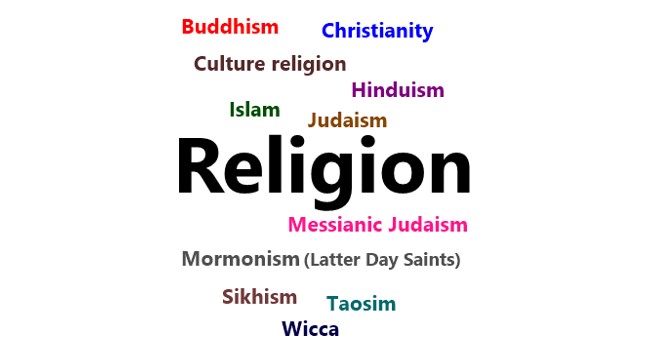
The sins of the evangelicals will result in the evangelicals going to Hell. At least that is what the logic of evangelicals dictates.
By “the logic of evangelicals” I mean the logic of evangelicals that I have seen expressed on Twitter.
I have lost count of the number of evangelicals who claim the following: Having unconfessed sin in your life will result in Hell for you even if you have saving faith in Messiah Jesus.
Some evangelicals have gone so far as to claim this: Unconfessed sin in your life means that you don’t have saving faith in Messiah Jesus.
If these claims are true, then Hell is going to be full of evangelicals.
I say that because evangelicals have unconfessed sin in their own lives.
For the record, I am not in a position to determine who will and who will not go to the Hell that evangelicals speak of.
Neither are they, but they certainly do act like they are, which is their unconfessed sin.
To justify my own claim, I need to share passages from the New Testament. You might not believe the New Testament, but evangelicals claim that they do. So, here goes:

In the above passage, the master tells his servants not to try to separate the weeds from the wheat because they might pull up wheat in the process. Instead, the reapers will do the job properly at harvest time, after which they will burn the weeds.
That fate certainly will make the weeds grim.
Now, here is another passage that explains the previous passage:
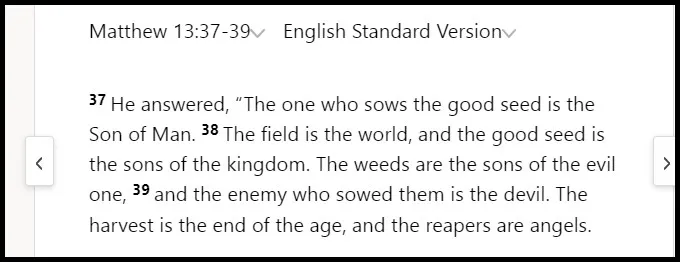
According to this second passage, angels are the grim reapers.
Yeah, that’s a dad joke. I’m a dad. So, I have to tell at least one.
Anyway, the above-shown passages indicate that evangelicals are engaging in a sin that they don’t confess: They are supposed to be the master’s servants, but they act as if they are the reapers. In other words, evangelicals assume that they have the authority of angels, an authority that the master has not given them.
Yeah, evangelicals might have that authority once they reach Heaven (assuming that they do reach Heaven), but they don’t have the authority while on Earth.
So, evangelicals sin by assuming that they have a heavenly authority that they do not have. According to their logic, if they fail to confess this sin before they die, then they will go to Hell even if they claim to have saving faith in Messiah Jesus.
Now, evangelicals might protest by proclaiming, “Wait! Because we are believers in Jesus, his blood covers all of our sins, even sins that we fail to confess. Thus, we won’t go to Hell.”
If that proclamation is true, then it applies to every person who confesses faith in Jesus, including members of the LGBTQ community.
That’s right. Some people who confess faith in Jesus are members of the LGBTQ community. According to John 3:16, Romans 10:8–13 and 1 John 5:13, anyone who confess faith in Jesus will go to Heaven, and “anyone” includes members of the LGBTQ community.
That’s right. Some people who confess faith in Jesus are members of the LGBTQ community. According to John 3:16, Romans 10:8–13 and 1 John 5:13, anyone who confess faith in Jesus will go to Heaven, and “anyone” includes members of the LGBTQ community.
Yet, I have witnessed numerous evangelicals proclaim this: No member of the LGBTQ community can go to Heaven even if that person confesses faith in Jesus. Why? As evangelicals put it, “Because members of the LGBTQ community have unconfessed sin in their lives.”
Yep, evangelicals apply one standard to themselves and another standard to the LGBTQ community.
Hmm, I recall a statement that Jesus made about the standard that ones uses to pass judgment:
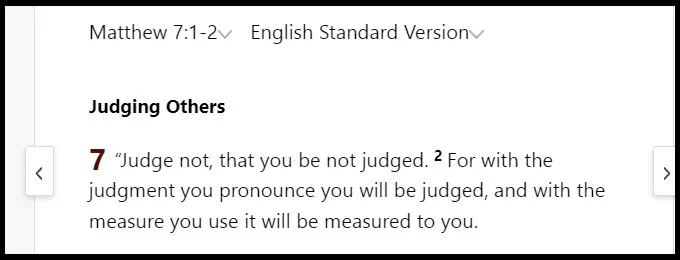
For the record, what the word evangelical originally meant isn’t what it means now, which is why some believers in Jesus refuse to describe themselves with that word.
One can be a believer in Jesus without being a modern-day evangelical.
![]()
EVANGELICALS AND HELL
Whenever evangelicals mention Hell, they are not citing the Bible.
Why? Because the word Hell isn’t in the Greek New Testament manuscripts or the Hebrew Old Testament manuscripts.
The word Hell originated from ancient Norse mythology. It originally was the name of the Norse deity who ruled the resting place of all dead people. Then it became the name for the Norse resting place of all dead people.
In ancient Norse mythology, the latter was a place with a temperature below 32 degrees Fahrenheit. So, to the ancient Norse people, it was a given that Hell was frozen over.
So, why did the word Hell end up in some English versions of the Bible?
Answer: Because people who translate the Bible into English are not infallible prophets. Thus, it is possible for the wrong word to end up in an English-version of the Bible.
That is what happened when the King James Version was first produced.
To make matters worse, people reading the KJV displayed poor reading comprehension by equating Hell with the lake of fire.
To see what I mean, read the following Bible passage in the KJV:
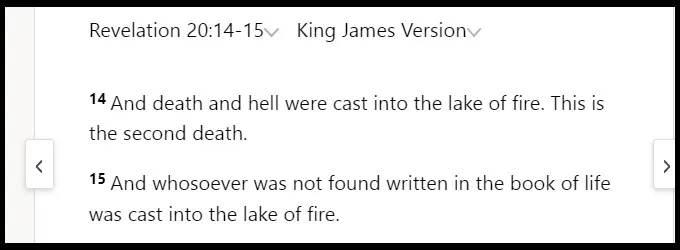
According to the KJV, Hell is not the lake of fire. Instead, Hell is thrown into the lake of fire. Thus, it is biblically incorrect to claim that people will be thrown into Hell for not believing the way that evangelicals believe.
By the way, here is a correct English translation of the same passage:
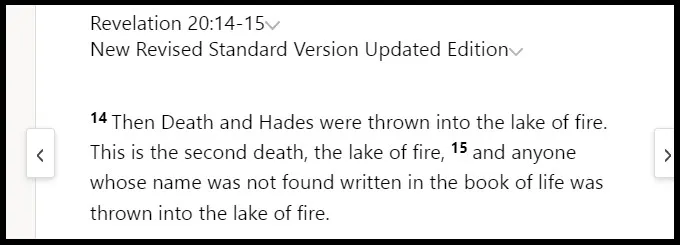
This translation uses the correct word Hades instead of the incorrect Hell, and not even Hades is the lake of fire. So, why do evangelicals keep mentioning Hell?
Answer: Because mentioning Hell is tradition.
Hmm, I recall a statement that Jesus made about favoring tradition over scripture, and . . .
Oh, forget it.
The “Wanted” posters say the following about David: “Wanted: A refugee from planet Melmac masquerading as a human. Loves cats. If seen, contact the Alien Task Force.”
















